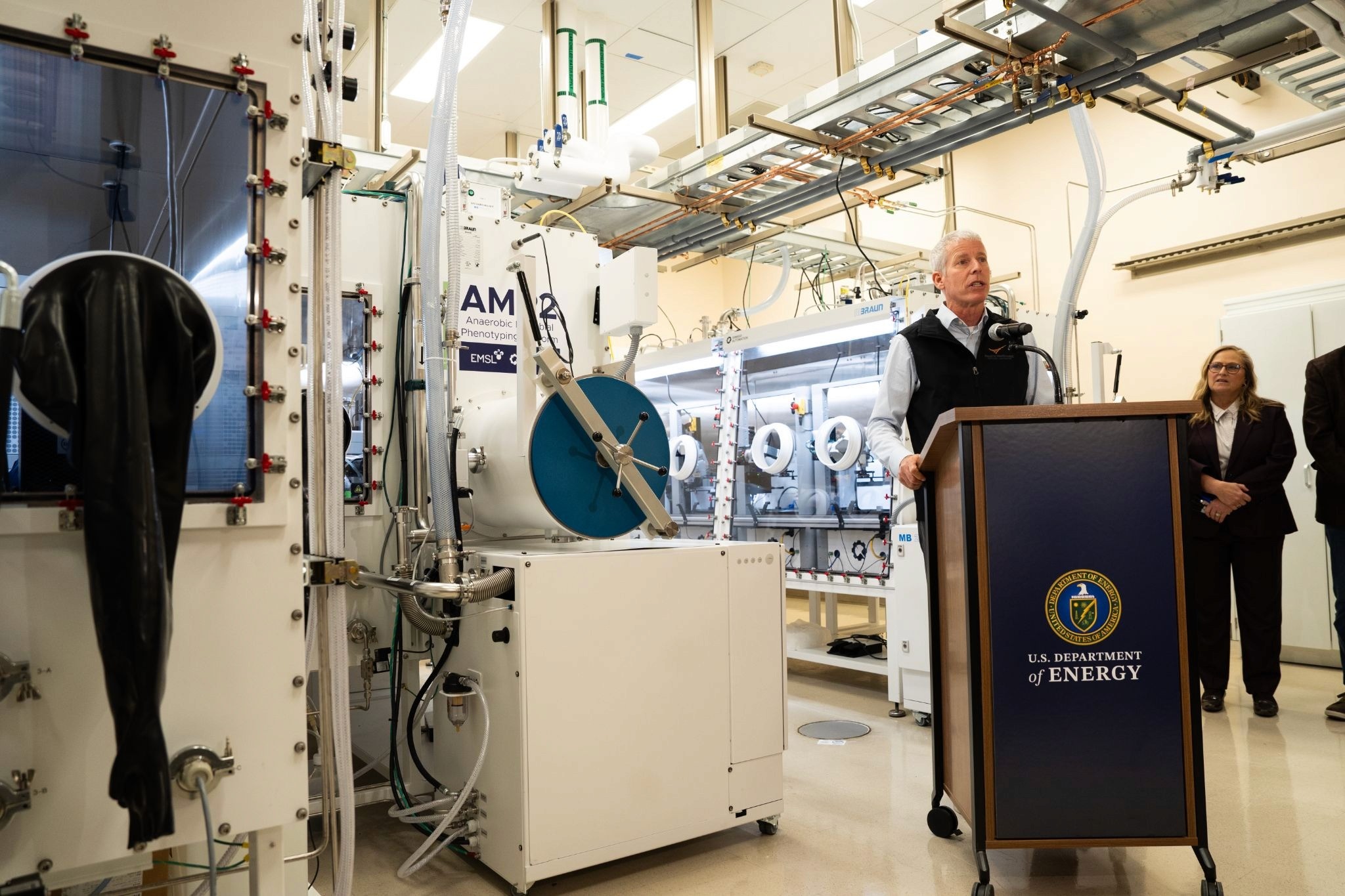Netflix ‘Pandemic’ Star Just Showed His Covid-19 Antibody Drug Works In Hamsters. How Quickly Could It Treat Humans?
Jun 21, 2020
Jacob Glanville is an admirer of the human immune system — but he thinks we can do better. His company Centivax announced that they have created optimized antibodies that protect hamsters from lethal amounts of the virus that causes COVID-19. SYNBIOBETA
In his race to create life-saving antibodies, Jacob Glanville has gotten a boost from bacteria and synthetic biology.
Jacob Glanville is an admirer of the human immune system — but he thinks we can do better.On Tuesday, his company Centivax announced that they have created optimized antibodies that protect hamsters from lethal amounts of the virus that causes Covid-19. Compared to animals that did not receive the antibody, treated hamsters were found to have 97 percent less virus in their lungs after 48 hours.This is a milestone for Centivax, which is among many companies trying to develop antibody treatments for Covid-19. Centivax’s antibodies are unique, however, in how they are made. Rather than using mammalian cells to produce a protein drug, which is common, slow, and expensive, Centivax is using cheap bacteria.Glanville, a former Pfizer PFE scientist who received his Ph.D. in immunology from Stanford, has for years been obsessed with disrupting the immunity business. Since co-founding Distributed Bio in 2012, from which Centivax emerged, he has sought to develop better flu vaccines and cheaper antibody drugs that could block common infectious diseases.Antibodies are proteins that the immune system creates to combat invaders. Unlike vaccines, they cannot confer long-term immunity on their own. But the right antibody dosed at the right time can shut down a virus and thereby benefit someone who is or is about to become ill. Many experts believe antibody treatments are our best bet for blunting the coronavirus pandemic while we wait for a safe and effective vaccine.“We took antibodies that recognize SARS and re-engineered them to block the new coronavirus,” explains Glanville. “But importantly, we also made these antibodies much simpler to manufacture.”Most useful antibodies are discovered in the blood of patients who have recovered from infection. Some altruistic survivors of Covid-19 can donate bags of their antibody-rich plasma to hospitals for use as a treatment on those still infected, but this trickle is no match for the ongoing flood of coronavirus cases. But especially helpful antibodies are not donated; they are manufactured in mass quantities and sold. In fact, many of the most lucrative modern drugs are antibodies, including the immunosuppressive Humira and the cancer-fighting Keytruda. These life-saving molecules are grown from cultured mammalian cells inside multi-million dollar factories.“A working therapeutic needs to work, but you also need to make enough of it for everyone,” says Glanville. “Those facilities are heavily impacted during normal times — now you have to get in line and try to make millions of doses.”To improve things, Centivax has partnered with Swiftscale Biologics, a firm that specializes in rapid bacterial production “We are impressed by the potential of Centivax’s highly potent antibodies and are excited to help accelerate their manufacturing scaleup,” Said David Mace, CEO and co-founder of Swiftscale Biologics.Glanville estimates that as a result, the first 100,000 doses of their candidate therapy could be produced in “nine weeks as opposed to six months.” Beyond sheer speed, global availability may improve as well. “We can start producing our drugs in different factories, and these factories are not impacted in the way the others are. They are cheaper , and there are more of them around the world.”Competitors to Centivax such as Dupont and Millipore are aiming to have their own optimized Covid-19 antibodies produced through traditional methods ready for clinical testing by November or December. Glanville says that his product could be available for widespread compassionate use by then, assuming clinical testing goes well.When it comes to the Covid-19 pandemic, Glanville isn’t focused so much on the big numbers as the smaller ones. “The whole crisis is because of the 1o to 20 percent of people who get really sick. They are the ones in real trouble, with a high risk of death and a long recovery. This is what creates unsustainable waves.”A vaccine—when it eventually arrives—will help slow transmission, but it will be of little use to those already in a hospital bed with Covid-19.“What you need is an affordable medicine that you can hand out at hospitals,” Glanville says. “People take it, get better, and then walk out.”Follow me on Twitter at @johncumbers and @synbiobeta. Subscribe to my weekly newsletters in synthetic biology. Thank you to Ian Haydon for additional research and reporting in this article. I’m the founder of SynBioBeta, and some of the companies that I write about—including Distributed Bio—are sponsors of the SynBioBeta conference and weekly digest. Here’s the full list of SynBioBeta sponsors.
Originally published on Forbes https://www.forbes.com/sites/johncumbers/2020/06/16/netflix-pandemic-star-just-showed-his-covid-19-antibody-drug-works-in-hamsters-how-quickly-could-it-treat-humans/


















